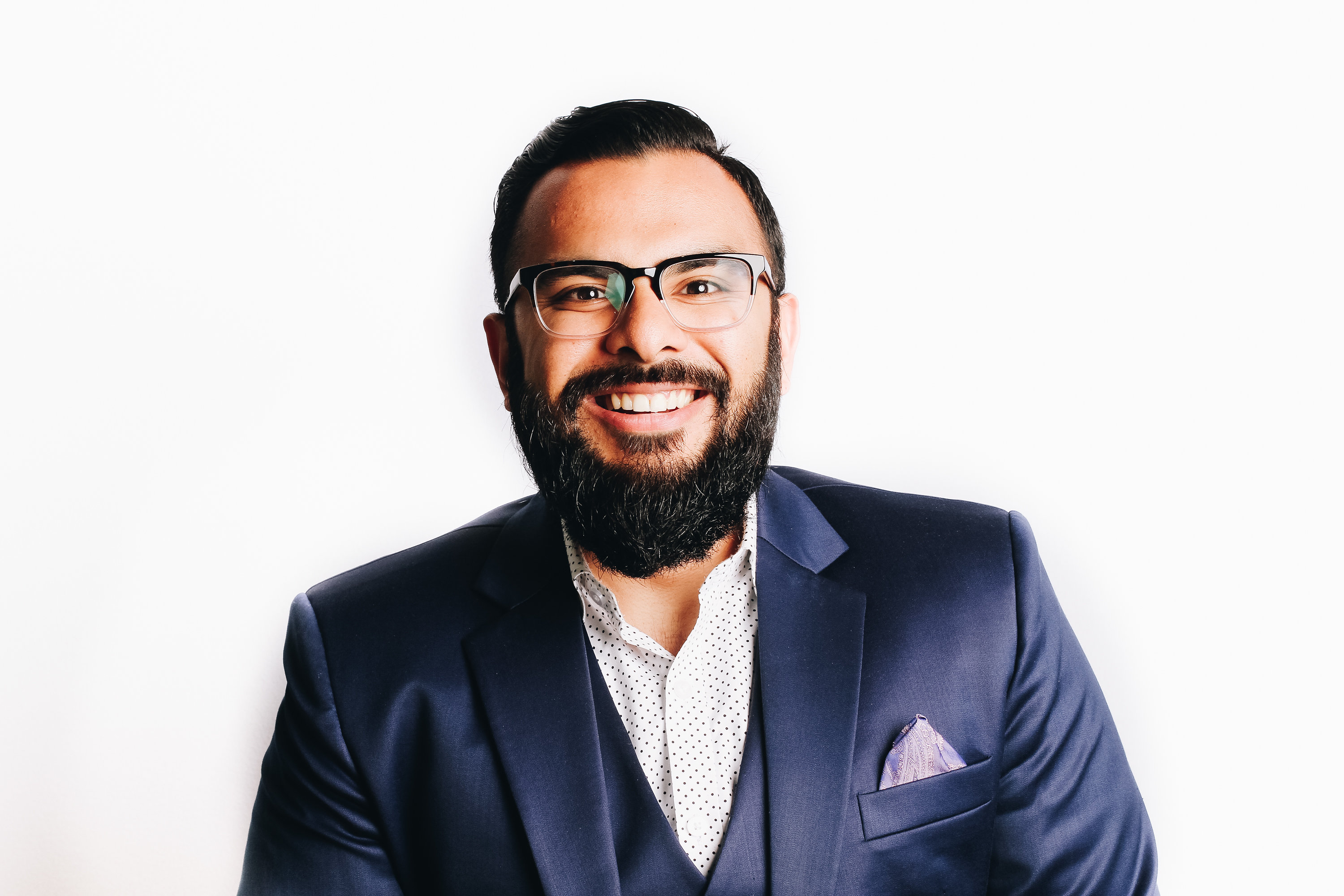As a part of my interview series with prominent medical professionals about “How To Grow Your Private Practice” I had the pleasure of interviewing Dr. Janelle Luk.
Dr. Luk is a reproductive endocrinologist & infertility specialist who is the medical director and co-founder of Generation Next Fertility, a private fertility clinic in Manhattan, NY. Dr. Luk trained at Yale University School of Medicine and Brigham and Women’s Hospital. In her free time, Dr. Luk enjoys playing basketball, spending time with her husband and children, watching movies and when she can, finding opportunities to educate women on their reproductive health.

Thank you so much for joining us! Can you tell our readers a bit about your ‘backstory”?
I was born in Hong Kong. At 11 years old, my mother brought me to America. I was old enough to be shaped by my life experiences in Hong Kong, yet I was young enough to still be influenced by my upbringing in America. My Eastern and Western experiences define me equally. I attribute a lot of my strengths to these two distinctive worlds and ways of thinking.
After high school, I attended Cornell University for my undergraduate studies, Yale University for medical school, and attended Brigham and Women’s Hospital Residency Program for my women’s health training. During my time in Boston, I continued to mentor and educate Harvard medical students on women’s health issues and started a student organization for integrative medicine and women’s health. This is something I remain passionate about today.
What made you want to start your own practice?
Truthfully, I had an opportunity to shake things up for the better and I took it. I am simultaneously traditional and nontraditional and instead of looking for a space to grow, I created one. I wanted to push boundaries and offer women the best care possible, which included integrating and collaborating, so that they could be empowered during their journey. I have a Harvard training to lean on, and an evolving and open mind with eastern roots. Everyone is different and although the standard of care is applicable, we must tweak it to provide the best possible outcomes to our patients. I thought to myself, “I am here to take control of the meaning of why we are doing what we are doing, not just servicing and cycling people but empowering and educating women in their individual healthcare process” and I need my own space to do it! My intention is to provide a different type of service and care. It’s empowering for everyone involved.
Managing being a provider and a business owner can often be exhausting. Can you elaborate on how you manage both roles?
I am always “working” but to me it’s not really “work” because I unconditionally love what I do. So I am just being.
As a business owner, how do you know when to stop working IN your business (maybe see a full patient load) and shift to working ON your business?
I work in my business during the day and I work on my business at night. When I am not working directly with a patient, I am working on improving the patient experience as a whole. I have an incredible team I have built and a support system that allows me to grow the practice and provide a seamless service to my patients simultaneously. We treat our patients like family and when you are helping family, it isn’t “work.” It’s taking care of what’s important to you.
From completing your degree to opening a clinic and becoming a business owner, the path was obviously full of many hurdles. How did you build up resilience to rebound from failures? Is there a specific hurdle that sticks out to you?
Trust. I put my trust in the few select and that was that. I trusted in my support system and in my destiny. My biggest hurdle yet would have to be managing my work and personal life. One can bleed into the other if you don’t have discipline and take your gut intuition into account when making decisions.

What are your “5 Things You Need To Know To Grow Your Private Practice” and why?
1. Compassion: Give without expectations. Give information, give medical care, give yourself and your time and your concern. Give freely and never ever regret a moment of it.
2. Respect your staff and give credit where credit is due: People are full of surprises. Respect everyone. All it takes is one solid idea to move a mountain and you never know who can come up with that idea and when. So support, empower and respect your staff so they are equipped with what they need to feel safe to think outside of the box. In terms of presenting this as a story, we brainstorm every day, the entire staff, and just the other day our finance department had a suggestion for our nursing department that truly impressed me. Fortunately, we all feel united as a team and comfortable contributing to departments outside of our clinically assigned ones.
3. Give love and true care to your patients: For example, treat patients as you would treat your family. I just had a patient walk out of my office and I feel fully confident that she could not be cared for in a better way. It could have been my best friend, a blood relative, my daughter, my sister; it didn’t have any effect on how I treated them. An example for me would be the late-night calls I have with patients. If you need me, I am here and I am listening and ready to help. We are on this journey together.
4. Maintain a high awareness of what is going on within and between each department: I went from being a micromanager to a tiger boss recently. Call it whatever you want but I try to know as much as possible about every department and every staff member in that department (their strengths and weaknesses, how they are incentivized, etc.) so they feel content in their position and they have a sense of purpose.
5. Love science and invest in science: Due to the fact that I frequently perform IVF to help build families, I invest daily in my laboratory. I spend every day improving and refining every single detail about our laboratory. There was a patient who could not achieve an intact embryo in another laboratory, but we are able to achieve a better quality embryo here.
Many healthcare providers struggle with the idea of “monetization”. How did you overcome that mental block?
It turns out economics can improve quality of care — medical school taught us not to focus on this, but if we do not focus on growth, monetary growth, quality of care becomes compromised and stagnant.
Don’t think of yourself as just a provider but instead as a leader with responsibilities to improve health care services for the people you care about and the people who put so much trust into you –money makes service and patient care better.
It’s a cycle. To have a center with the best equipment, the best employees, the best environment, and one that fosters new research and advancements you need capital — period end of story. And you need success and happy patients to bring forth the necessary capital. And no, you cannot hire someone to do this for you as a doctor because only you know what your patients need. It’s a lot of responsibility and it’s important to exercise growth tactics seamlessly and quantifiably as much as possible.
What do you do when you feel unfocused or overwhelmed?
I give myself a moment of respite and I refer back to my support system. Just stepping away from whatever is overwhelming me gives me clarity and as a competitive person, it builds back up my energy and excitement. I transfer my overwhelmed energy into focused inertia. There is strength in slowing down. There is a beauty and power in re centering oneself. I tell my patients again and again, find balance within and it will manifest itself.
I’m a huge fan of mentorship throughout one’s career — None of us are able to achieve success without some help along the way. Who has been your biggest mentor? What was the most valuable lesson you learned from them?
My biggest mentor was my mother. She showed me no matter what or who stood in your way, that your path was determined from within. “Find a way or make one.”
What resources did you use (Blogs, webinars, conferences, coaching, etc.) that helped jumpstart you in the beginning of your business?
I used my formal education, my informal education, and my gut intuition while monitoring each and every step to see how it was contributing to the attainment of key performance factors.
What’s the worst piece of advice or recommendation you’ve ever received? Can you share a story about that?
“Just be a good doctor. Don’t worry about everything else. Just go to work, it will be taken care of for you. Hire everyone and they can fix everything.”
There is no magic pill! This is terrible advice. Horrible advice. Expand your mind, grow, take responsibility, be disciplined, humble, rely on yourself and trust yourself. Never ever be single minded, let alone limit yourself. Certainly, I am not saying do not seek or accept assistance from others. Just take responsibility and become a leader on both the microscopic and macroscopic spheres.
Please recommend one book that’s made the biggest impact on you?
Lean In.
Where can our readers follow you on social media?
Instagram: @goodluckluk @gen.next.fertility
Facebook: Janelle Luk

For other incredible interviews, please check out our podcast: Healthcare Heroes.
A special thanks to Dr. Luk again! The purpose of this interview series is to highlight the entrepreneurs, innovators, advocates, and providers inside Healthcare. Our hope is to inspire future healthcare providers on the incredible careers that are possible!
Stay in the loop — Follow NPHub to get the latest updates when we post new interviews: Facebook, Instagram.


